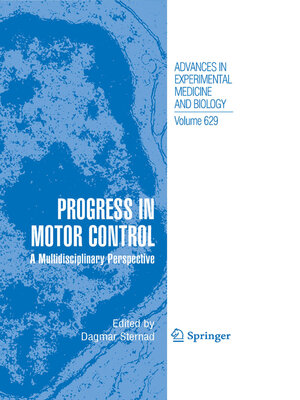Progress in Motor Control
ebook ∣ A Multidisciplinary Perspective · Advances in Experimental Medicine and Biology
By Dagmar Sternad

Sign up to save your library
With an OverDrive account, you can save your favorite libraries for at-a-glance information about availability. Find out more about OverDrive accounts.
Find this title in Libby, the library reading app by OverDrive.



Search for a digital library with this title
Title found at these libraries:
| Loading... |
It has become widely acknowledged, and almost trivial to state, that the study of the control and coordination of biological movement – motor control – is inherently multidisciplinary. From the investigation of overt functional behavior to the int- cacies of neuronal activations, the issues are numerous and invite many different levels of analysis, methods, and perspectives. Clearly, the biological movement system is simultaneously a dynamical, neurophysiological, electrophysiological, and intentional system, in short, a complex system in the technical sense of the word. While multidisciplinarity in motor control research is a necessity, it also presents a stumbling block to developing a coherent body of knowledge that represents the science of the control and coordination of movement. Research thrusts are developing from different academic backgrounds that are not easily understood by peers with entirely different disciplinary training. Not only for the student of motor control, but also for the advanced researcher, it can be daunting to make connections, for example, between cognitive issues like pl- ning or attention and functional properties of the peripheral nervous system, between motor cortical activation and the biomechanics of the multi-joint limb system. Yet, all of these approaches aim to shed light on the same phenomenon – the astonishing ability of biological systems to move, perceive, grow, adapt, use tools, and do infinitely more things. For the science of motor control to progress more integration of disciplines is therefore necessary.






